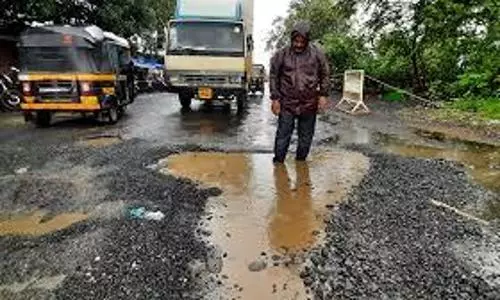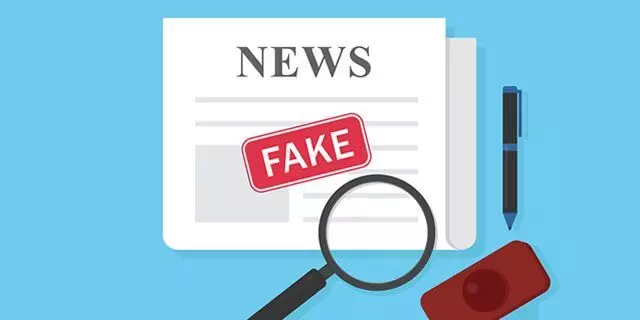
Censorship by PIB
text_fieldsThe Ministry of Electronics and IT has issued a notification empowering the Public Relations Department under the government to flag whether information related to the central government on social media platforms is true or false. This authority has been given to the Press Information Bureau (PIB). If the PIB label the content on these online media platforms such as Twitter and Facebook as fake, then the platforms are bound to remove it. According to an amendment to the Information Technology (IT) Rules, 2021, content that are labelled fake should be taken down within 72 hours. Not only the PIB but the government ministries and departments concerned have also been given the power to identify ‘fake’ information. The problem is not the dearth of laws against fake news and disinformation. There are provisions in section 69A and section 79 of the IT Act, civil-criminal defamation Acts and digital media laws against false propaganda. On the one hand, the government allows fake news that create hatred to spread freely while on the other hand, attempts are being continued to suppress freedom of expression and dissent by abusing the existing laws against fake news. The government is now donning an armour for its defence with the hasty new amendment to control the news. It is hard to believe that the move is to prevent fake news. With general and state elections looming, for the government which is struggling to provide an explanation on issues including the Adani connection, the new rule is an easy way to put an end to democratic debates and criticisms. The goal is not to stop fake news and disinformation but censorship.
The government says it will create a regulatory mechanism to fact-check whether social media content is true or false. However, it is said that it will not be an independent body but that it will be operating under the PIB. But it is not clear whether there will be qualified public servants or journalists, whether they will be given expert training in fact-checking, whether international standards and guidelines will be followed in fact-checking, and what the fact-checking methods and procedures will be. In fact, all the fact-checks the PIB has done so far have shown its natural subservience to the government. One can only imagine how independent the fact-check wing of the PIB, a department under the union ministry, will be.
Several instances of fact-checking done by the PIB recently, have established the agency’s subservience to the government. Tapasya, a journalist with The Reporters’ Collective, had revealed on Article 14, a news portal, that the Centre had moved to make Aadhaar mandatory for children under six years of age to get access to nutritious food at anganwadi centres. As soon as the news came out, the PIB labelled the story as fake. When she filed queries under the Right to Information Act to find out more, it was found that it was the PIB that had issued an untrue statement. This incident took place last year. In 2019, Business Standard's Somesh Jha released a piece of information in the newspaper that the National Sample Survey Office (NSSO) found unemployment in the country had reached a 45-year high and was being kept under wraps as the general elections were around the corner. PIB immediately came out with a 'fake' stamp to brand the story fake. NDA won the elections. Later in May, when the survey report was published by the government, it was found that Somesh Jha's report was correct. Reports by Rohini Singh in The Wire about the purchase of unusable and ineffective ventilators during the pandemic period and about the Centre taking important decisions without consulting the Covid task force by Vidya Krishnan in 'The Caravan' in 2020, were branded as fake news by the PIB. However, those conclusions were proved to be wrong.
Even if the findings are correct, the PIB factcheck cannot be the final word on the truth. The BBC documentary on the Gujarat genocide was banned from social media platforms not because it was not true. The history of the Mughals, the peasant deaths in Vidarbha, the motivations behind Mahatma Gandhi's assassination, and deaths due to pollution were removed from the textbooks not because they were false. The goal behind this is to make all the information and knowledge activities to be the public relations material of the government, by the time the elections take place. It is not only anti-democratic but also anti-national to give power to the government’s public relations agency - one that has already proven its loyalty many a time - to decide which news should be disseminated among the people or not. The strange system in which the defendant becomes the judge may be enough to divert public attention from reality, but it will hinder the country's progress and development. It has already become clear that the recent amendments in the IT laws are meant to hide the facts and distort them in favor of the government. The BBC documentary that incurred the government's displeasure, points to an answer Narendra Modi gave while he was Chief Minister of Gujarat. When asked by the interviewer whether he had a regret in anything, he replied that he only regretted not being able to handle the media. The government is now trying to rectify that 'mistake' by controlling not only the media and social media platforms but also the news content.


























